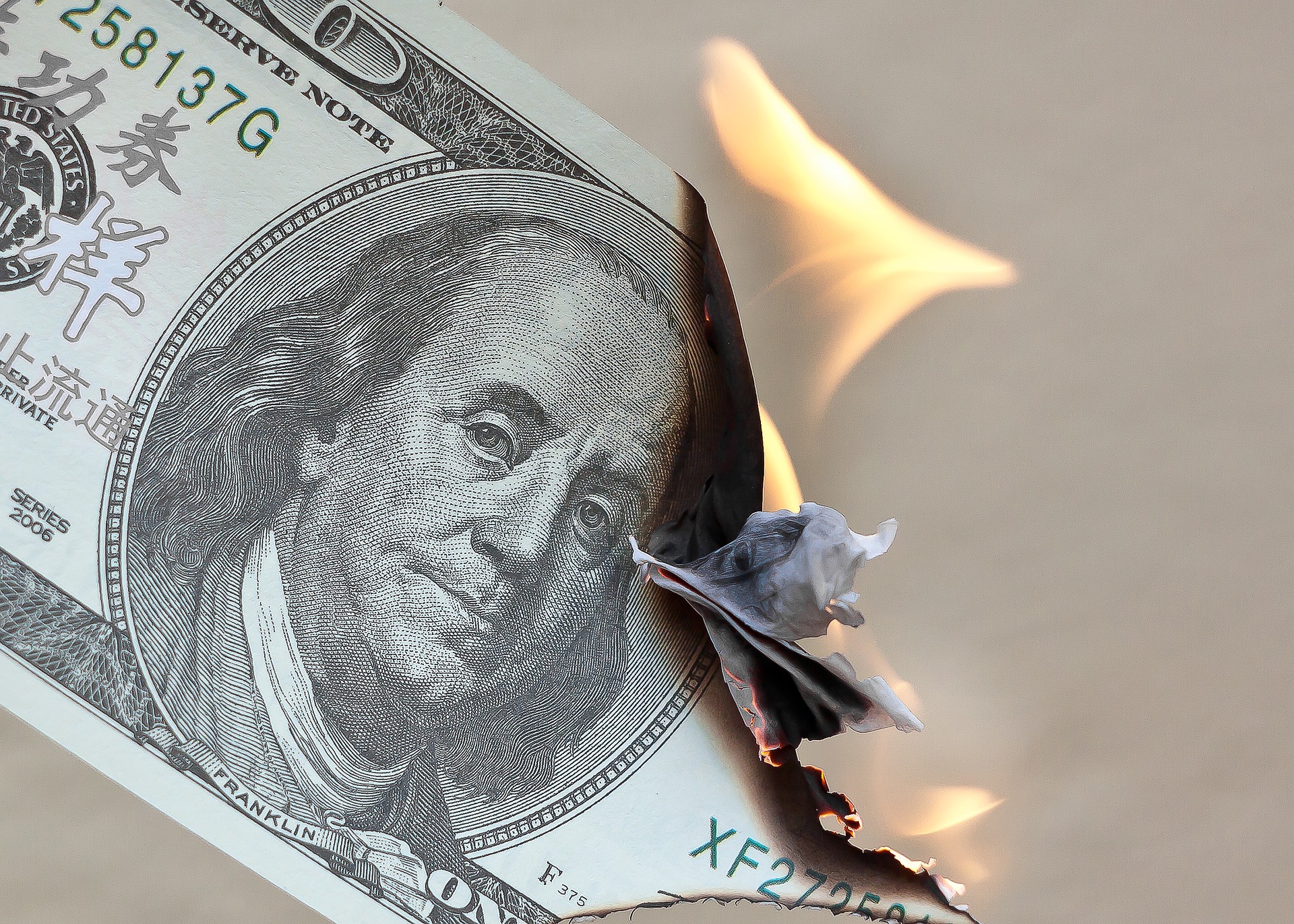 Folks aren't happy with the central banks...
Folks aren't happy with the central banks...
The key role of these institutions is to keep the economy humming. Their monetary policies are supposed to hold prices steady and allow the economy to grow.
People talk less about them in good times. But there's always plenty of discussion about their actions when the economy turns sour.
It's the central banks' job to help minimize how bad issues like inflation get. So when inflation is one of the top headlines every day, the Federal Reserve and its peers catch bad press.
It's almost impossible for central banks to get good reviews.
One camp will say they're being too aggressive. Another might say they're too relaxed. Some think they shouldn't exist in the first place. Still others might even say Fed members are just plain bad at their jobs.
 That's what happened after the Great Recession...
That's what happened after the Great Recession...
Global central banks began a project called quantitative easing ("QE"). Put simply, they tried to help stimulate the world's economy by increasing the money supply.
To do this, a central bank buys government bonds or other financial assets from banks. That gives the banks more money to lend out to people and businesses. The goal is to help boost spending and economic growth.
The Fed started to conduct QE in November 2008. It purchased trillions of dollars of financial assets... injecting money into the system and increasing the money supply.
The idea was to provide liquidity and make people spend money. That would grease the wheels of the economy.
QE was supposed to be used in emergencies only. Instead, it has been going on almost constantly since the Great Recession.
And the biggest QE push came during the pandemic. This has led a lot of critics to argue the strategy was a failure because we're now facing rampant inflation.
Some argue that increasing the money supply during the pandemic caused inflation.
Others think it helped corporations get cheaper debt than they deserved... creating what's called "zombie" companies. These are companies that can't afford to pay off their debt, meaning they're destined to go bankrupt.
And the biggest criticism is that the decadelong recovery from the Great Recession was too weak. These folks say QE clearly didn't help the economy at all.
 It's easy to say all of this after the situation has played out...
It's easy to say all of this after the situation has played out...
These arguments don't consider the alternative if we'd done nothing.
If it hadn't been for QE, the 2008 Financial Crisis likely would have been far worse. Instead of a sluggish recovery, we'd probably have entered a Great Depression 2.0. The global economy likely would have suffered from much greater structural damage.
Without all the stimulus from QE, banks would have been more cautious about starting to lend again. Consumers would have wanted to save instead of spending. Companies would have battled with sustained low demand.
QE didn't kick off until the Great Recession was well underway. There were plenty of defaults during that time. But without the Fed's emergency measures, we would have seen far more.
More important, those defaults would likely have continued for far longer.
It only took two years for U.S. gross domestic product ("GDP") to exceed prior peak levels after the Great Recession. In the Great Depression, it took 12 years to just return to 1929 levels.
And U.S. GDP hadn't recovered to its Roaring '20s peak until just as the country entered World War II in 1941. The economic shock would probably have been milder with a tool like QE in place.
It also helped protect other nations from economic contagion in the 2010s. Recall the European debt crisis, which could have spread right back to the U.S. if it weren't for QE. Because the Fed kept U.S. interest rates low, we were able to continue our recovery.
Here again, QE helped prevent the worst-case scenario.
 This time around, QE helped keep the lights on during the pandemic...
This time around, QE helped keep the lights on during the pandemic...
We're two years removed from the latest round of QE. The worst aftereffect we've ended up with is a year of high-single-digit inflation. That's a small price to pay for saving the economy.
To say QE alone caused inflation ignores years of economic policy. We'd been using this strategy for more than a decade before we got even a modest bump in inflation.
High prices aren't only a result of QE. They're connected to the massive fiscal programs we enacted during the pandemic... supply-chain disruptions... the remote-work environment... and the Russia-Ukraine war.
Critics tend to ignore all these facts and put all the blame on central-bank policies. That's just a lazy take.
If you want to really understand what is causing inflation – and where the economy is going next – you need to take a far more robust view.
Tune out the angry crew looking for a Fed-shaped scapegoat.
Instead, focus on what's actually happening in the economy – and how it can affect your portfolio. The forward-looking macroeconomic data will prepare you to invest in 2023 and beyond.
Regards,
Rob Spivey
December 8, 2022



 Folks aren't happy with the central banks...
Folks aren't happy with the central banks...

